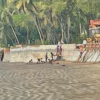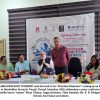Goa is abuzz with excitement as vintage bike and car owners, users, collectors and fans are decking […]

WEEKEND UPDATES
May 31- June 06, 2025, WEEKEND UPDATES May 30, 2025SHOCKING ARREST OF TEEN
A 19-year-old engineering student Ms Shaikh, was arrested and put behind bars on May 9, 2025 for an online post on the India-Pakistan hostilities during Operation Sindoor. She was also removed from her college. The complaint was filed by a police constable who claims to have been on patrol. The teenager deleted her post within two hours and tendered an apology.
The Bombay High Court was shocked by the arrest of the girl. “Who arrested the student like this? Does the state want students to stop expressing themselves and be converted into criminals? This is the age to make mistakes, rectify and deal with them. What impact will a student’s comment have on the national interest?” The Bombay HC ordered the immediate release of the teenager and allowed her to take her fourth semester exams.
FUKUSHIMA V/S SINGAPOREAN MODEL
GOA stands at the edge of a very steep and slippery slope, one wrong step and there is no way back. The proposed Dhargalim Integrated Resort can change the prospects of youth for generations to come, for better or for worse.
In the past 12 hours, Goans watched a Union minister try to sell us the idea of building our own nuclear power plant and a few local politicians instantly shot it down. The others will echo their aspersions in the next few days, along with concerned citizens.
God willing, the ceasefire will hold, and Goa can get back to business as usual. But business as usual has taken a toll on both Goans and Goa herself. Noise pollution in the north belt is a huge problem, and I’m sure you’re aware of Goa’s drug and alcohol addiction figures. The proposed Integrated Resort — the first gambling venture in that area code — has the chance to put Goa on the well-being metrics map. Conversely, it could add unimaginable problems to our peaceful yet vice-ridden motherland.
Australia learnt the hard way that poorly regulated casinos invite tech-savvy criminal syndicates. After Macau Triad boss Alvin Chau was arrested and subsequently sentenced to 18 years for a flurry of crimes involving casinos, Australian Integrated Resorts took a massive hit when it was discovered that they facilitated Chau’s activities. A multi-billion dollar project is now on the rocks as Australia’s new and improved gambling regulators scrutinize every facet of the sin industry. This is the latest news on their Integrated Resort woes, incidentally it also touches on a problem so severe that it caused a sitting justice of the Macau courts to resign his post and enter politics — money exchange gangs.
To the world, Goa’s charm lies in our laidback approach to life, including our tolerance for notorious lapses in law enforcement. The Rs35,000 crore mining revenue losses were written off and subsequently forgotten, but such notoriety — coupled with unregulated legal casinos — tends to attract very dangerous players.
Instead of building our own prospective Fukushima, Goa could go the Singaporean way, at least in terms of Integrated Resorts.
Goans cheered when ISRO reached the dark side of the moon, surely India will cheer just as proudly when Goa’s tourism, hospitality and entertainment are as rewarding as Singapore’s?
This last news update was from nine months ago. It details the slew of measures implemented by Singapore after their law enforcement agencies gutted a money laundering operation, whereby tons of black money was funnelled into illegal Filipino online gambling websites, routed to hundreds of Singaporean bank accounts and then laundered through high-end real estate. The casinos there couldn’t be exploited by the organized crime syndicate, but the government made regulatory changes nonetheless, citing their membership in the FATF as a precedent — with its common commitment to educate the world and fight terrorism financing, proliferation financing and other practices that enable criminal pursuits.
India stands as one against terrorism, Goa stands against terrorists potentially financing their activities using poorly regulated casinos on our peaceful soil.
— Chris Fernandes, Miramar, Panjim.
US HALTS STUDENT VISAS

THE United States, in a directive to all its embassies, has halted interviews for students applying for visas to study in the United States. Traditionally, the college term starts from September in the US, and students who want to study abroad line up for visas outside the US embassy and its offices. When the US consulate was on Wardon Road in Mumbai, there was a 2 km long queue to get applications for visas.
Now of course, everything is online. According to a notification by the Trump administration, “effective immediately in preparation for an expansion of requirements, no additional appointments will be given for student visas.” Students aspiring to study in the US also have to let the authorities examine their social media profiles.
A large number of international students have been protesting the war against Palestine by Israel have been expelled from many top universities like Harvard, which has been told not to admit international students. Over a thousand Indian students apply for admission to Harvard, the top universities in the US.
WHATSAPP PROMOTION

WHATSAPP — the popular messaging app — has started advertising itself in the electronic media. The target seems to be vernacular users. A high-profile advertising campaign has been launched in the electronic media. The campaign shows young couples messaging each other and making video calls.
The greatest attraction of WhatsApp is that it facilitates video calls. This brings together extended families and is very popular with migrants in Goa. In the complex we are staying currently I often hear and see our Nepali gurka watchmen and their wives visiting Goa making video calls to their families back in Nepal. They also listen to Nepali music with nostalgia. The question arises: What ails Nepal that it has not made it as a developed country and has to see this large export of work force to India with Goa being a popular state for them to earn a decent livelihood, so that their families back in Nepal may stay alive and dream of a better future.
MENSTRUATION HYGIENE DAY

CONCERN has been expressed over young women popping pills to postpone their month menstrual cycles. A young lady from Pilerne has been claiming that if her period clashes with Ganesh Chaturthi she will take pills to postpone it. In traditional Hindu Goa women are still not allowed to participate in religious events or attend a marriage if they’re in their period days.
However, it may be known that any manipulation of the monthly cycle has severe side effects. Unfortunately, these pills are available over the counter and do not need a prescription.
GOA TECH MEET FOR GOA
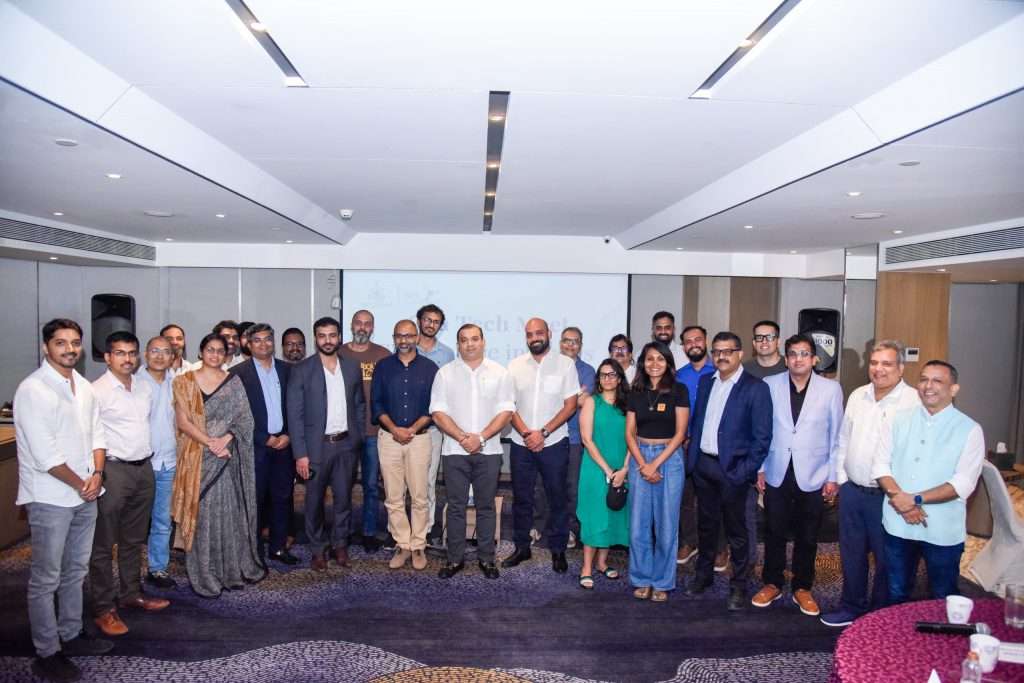
WITH India’s innovation economy entering a new phase of growth, Goa took a step forward with “Goa TechMeet: The Future in Focus” — a high-level industry interaction hosted by the Department of Information Technology, Electronics & Communications (ITE&C), government of Goa, under the leadership ofMinister of IT, Electronics & Communications Rohan A Khaunte. The exclusive meet on May 27, 2025 meet brought together leading founders, tech entrepreneurs, and creative industry stakeholders for an open dialogue with the government on shaping Goa’s trajectory as a thriving hub for digital innovation, electronics manufacturing, and creative technology.
Present at the meet were Managing Director of Goa Industrial Development Corporation Pramival Abhishek (IAS), Kabir Shirgaonkar (director of DITE&C); Dr Milind Sakhardande (joint director of DITE&C); Nijanand Vasta (deputy director, DITE&C; Priyatama Patil (assistant director, DITE&C; Neville Noronha (OSD to Minister for ITE&C); and DS Prashant (CEO of the Start-up & IT Promotion Cell-SITPC).
At the heart of the discussion was the government’s focused strategy to position Goa as India’s creativecapital — a unique confluence of technology, culture, quality of life and entrepreneurship. The meet served as a platform to strengthen state-industry collaboration in emerging areas such as AI, Industry 4.0, sustainable tech, and design-led innovation. “We are not here to build events—we are here to build ecosystems. More forward-thinking companies are now choosingGoa as a place to build, innovate, and grow. Our responsibility is to ensure that this momentum not only continues but scales meaningfully,”said IT Minister Rohan A Khaunte, emphasizing the government’s focus on delivering results, not just policies.
The government presented its multi-tiered approach to catalyze Goa’s digital transformation. Infrastructure is being strengthened through projects like the Electronic Manufacturing Cluster (EMC) at Tuem. In parallel, the state has rolled out upgraded start-up and IT policies designed to support a more responsive, growth-oriented environment. Goa is also expanding its support framework for digital nomads and creative professionals through upcoming initiatives such as the Design Village.
A strong emphasis has been placed on enhancing skilling, reskilling, and upskilling to ensure that the local workforce remains aligned with the needs of emerging technologies.
In his welcome address Kabir Shirgaonkar (director, DITE&C), stated, “We are creating an enabling ecosystem — from the Electronic Manufacturing Cluster (EMC) to start up grants and co-working hubs. Today’s discussion is about turning potential into partnerships.”
DS Prashant (CEO of SITPC) further added by outlining Goa’s evolving start-up and innovation strategy, highlighting revised policies, incentive models, and infrastructure in the pipeline. The event featured representation from companies such as CHALO, Quidich Innovation Labs, Persistent Systems, Turtlemint, Kilowott, Zimetrics Technologies, Infuse Consulting, Renevik Labs, McLaren/The Grit City, VisteonCorporation and Open Destinations, among others.
Delegates also included leaders from creative and design-led firms like Coco Leni, The Nod Magazine, 101 Wakepark, and TMTalent Management. These companies reflected a growing interest in Goa as a viable alternative to traditional urban tech hubs, citing better quality of life, responsive governance, and a rising innovation ecosystem as key differentiators.
With industry feedback now integrated into policy refinement and infrastructure planning, the Goa Tech Meet has laid the foundation for deeper partnerships. The department plans to organize follow-up engagements focused on talent, market access, and scaling Goa-based start-ups. Goa is ready to welcome the next wave of start-ups, technologists, and investors looking to build what’s next.
CARITAS GOA WINS FRANCIS OF ASSISI AND CARLO ACUTIS PRIZE
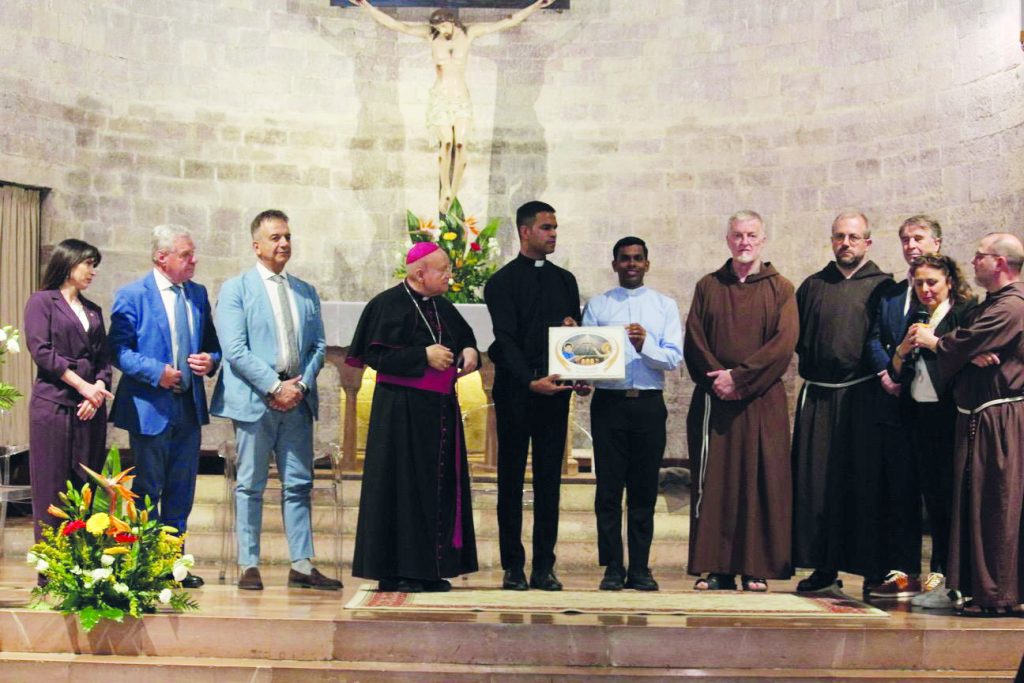
THE FRANCIS of Assisi and Carlo Acutis International Prize for an “Economy of Fraternity” was awarded to Caritas-Goa for their Project HOPE on May 25, 2025 at the Santa Maria Maggiore, Assisi. The award was handed over by Monsignor Domenico Sorrentino, Bishop of the Diocese of Assisi, Stefania Proietti, the President of the Umbria Region, Fr Roberto Genuin, the Minister General of the Friars Minor Capuchin and Msgr Anthony Figureido to Rev Fr Sanford Rodrigues, Goan student-priest studying in Rome on behalf of Caritas Goa.
“HOPE” (“Healing, Opportunities, Protection/Protection and Empowerment”) was developed in Goa with an aim to support young people (but not minors) who are victims of abuse and at risk, some of whom are deafblind, by accepting their request for help through the call center. And then providing them with specific training to create handcrafted and environmentally friendly products, such as toilet paper rolls, soap, handicrafts and biodegradable packaging, including customized eco-friendly hospitality kits, designed and provided according to demand.
Project HOPE focuses on those who are often overlooked by mainstream economic models – abused youth, those with disabilities, and marginalized women. Project HOPE develops a new economic model by putting large scale operators like five-star hotels into direct contact with vulnerable members who in turn purchase items required by the hospitality industry made of raw materials that would otherwise go to waste – banana fibre, coconut husks and recycled paper. The approach is innovative and creative in that it derives economic value from the particular capacities of local communities. In a concrete expression of the fraternity’s capital, one of the best-known hotel chains, Taj Hotels, welcomed the opportunity to stock, market and sell the products. The state of Goa attracts around a few million tourists each year – and this number continues to grow – and is home to sizeable number of five-star hotels.
This year, the Award secretariat had received a record of 60 projects in five languages (English, Italian, French, Portuguese, and Spanish) from 30 nations and 4 continents. Caritas-Goa was granted the award after three rounds of scrutiny by international experts.
Filipe Neri Cardinal Ferrão, Archbishop of Goa and Daman expressed his happiness for the award which “creates a new model of economy: a different economy, one that gives life and does not kill, includes and does not exclude, humanizes and does not dehumanize, takes care of creation and does not plunder it’. The President of the Umbria Region underlined that it is “a gesture of hope because with these projects we tell the story of social innovation that does not stop at the desperation of misery but looks with hope to make an apparently unsolvable problem an opportunity for sustainable and integral development, work and growth”.
Director of Caritas Goa Fr Maverick Fernandes expressed feeling deeply humbled with the international award granted to Caritas Goa and he proposed to the award secretariat the intention to “form an international community of fraternity, of change-makers, inspired by the International Prize Francis of Assisi and Carlo Acutis for an Economy of Fraternity,” through a WhatsApp group where information on formation, processes and management development plans will be shared with all the change makers that had applied for this award, but could not make it.
He affirmed that “we received this award not to hold it, but to be its custodians, and in doing so, we hope that every act of healing, every life lifted, and every effort of fraternity through this mission will contribute to spreading hope (HOPE) in the world.”
In addition to a cheque for 50,000 Caritas Goa received an icon of the prize with the depiction of St Francis and Carlo Acutis and the scarf with the image of the undressing of the Poor Man, made and delivered by Brunello Cucinelli, who recalled the difficulties of today’s society “of the increasingly widespread evil of the soul” but the possibility also with these initiatives to cure it.
GOVERNOR ON KHUSHAL KALYAN YATRA
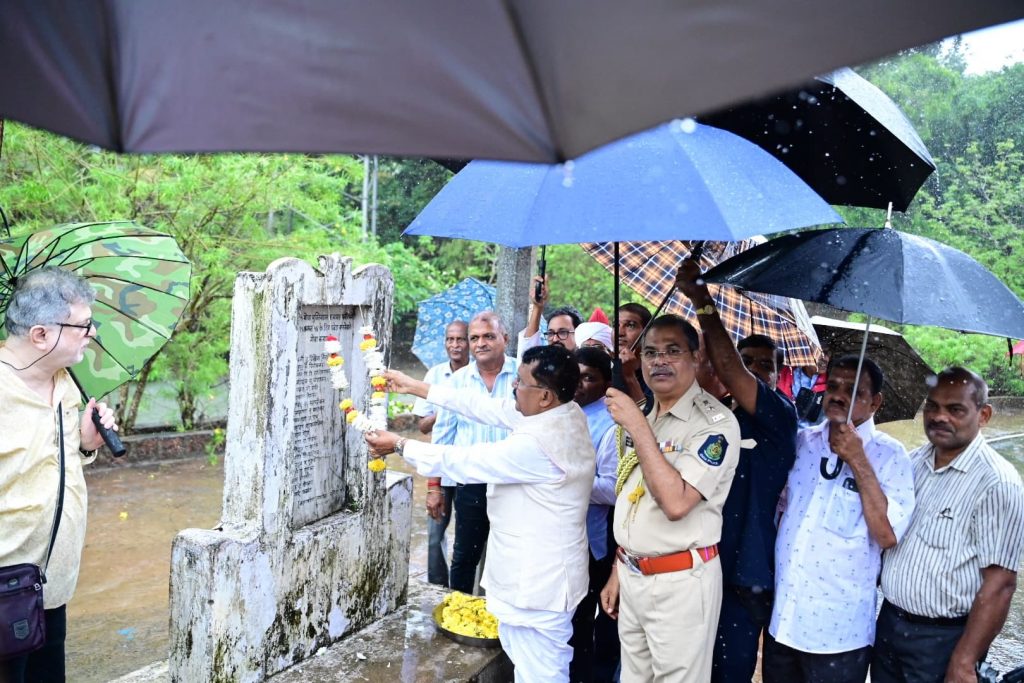
GOVERNOR PS Sreedharan Pillai in his third round of “Khushal Kalyan Yatra” visited five holy places in South Goa. He will also visit various other holy places in the remaining talukas. The governor started his yatra by visiting Shantadurga Ballikarin temple at Balli. Yuri Alemao, Leader of Opposition and Altone D’Costa, MLA welcomed him.
Later, Governor Pillai and First Lady of Goa Rita Sreedharan Pillai offered prayers at Shree Shantadurga Ballikarin temple. The governor was felicitated on behalf of the devasthan with an offering shawl, shriphal and a memento. The governor presented a cheque of Rs50,000 to the president of the Devasthan Samiti.
President of the Shree Shantadurga Ballikaran Temple Sanket Faldessai welcomed him on behalf of the devasthan. Others present included Vijay Faldessai (secretary), Mitil Faldessai (treasurer), Videsh Faldessai (attorney) and other committee members. Sarpanch Govind Faldessai was also present.
On his arrival at Shree Nirankar Devalaya, Mashem the governor was welcomed by Speaker of Goa Legislative Assembly Ramesh Tawadkar. Others present included Nisha Chari (sarpanch of Mashem village panchayat), Ramkrishna Prabhu Gaonkar (president of devasthan), Bhushan Prabhu Gaonkar, Madhav Prabhu Gaonkar.
Later, the governor visited Mano Sobha Colaghar at Mashem where Sandesh Prabhu Dessai briefed him about the functioning of Kalaghar. Prabhu Dessai mentioned that Kalaghar is a place which celebrates all art forms and where passion meets performances.
The governor placed a wreath at Hutatma Smarak at Poinguinim, Cancona and then visited the 800 years old renovated Shree Betal Devalaya and offered prayers. Ramesh Tawadkar (speaker of Goa Legislative Assembly), Savita Tawadkar (sarpanch), Harish Prabhu Gaonkar (president) and other committee members of the devasthan along with prominent citizens were present.
The governor later visited Zamatul Muslimeen Sunni Jamia Masjid, near Police Station, Demani, Cuncolim. Yuri Alemao, Leader of Opposition, Lendary Mascarenhas, Chairperson of Cuncolim Municipal Council and Office bearers of Zamatul Masjid including Shah Shabir, President, Shaikh Abdul Rauf, Vice-President, Sheik Rafaz, Secretary, Shaikh Suleman, Treasurer and others welcomed the governor and felicitated him on behalf of the managing committee of Zamatul Muslimeen Sunni Jamia Masjid.
Governor visited Our Lady of Health Church in Cuncolim where he and first lady offered prayers offered prayers at Our Lady of Health Church. During his Khushal Kalyan Yatra the governor is offering prayers at places of worship and invoking divine blessings for peace, happiness and welfare of the people of Goa and the nation.
He was accompanied by Sanjeev Gauns Desai (secretary to governor), R Mihir Vardhan (special officer to governor), Sanjeev Sardesai (historian) and A Kalyana Harsha (comptroller of governor’s household) and others.
APOLLO WORLD-CLASS DIALYSIS CARE AT SMRC HOSPITAL, CHICALIM
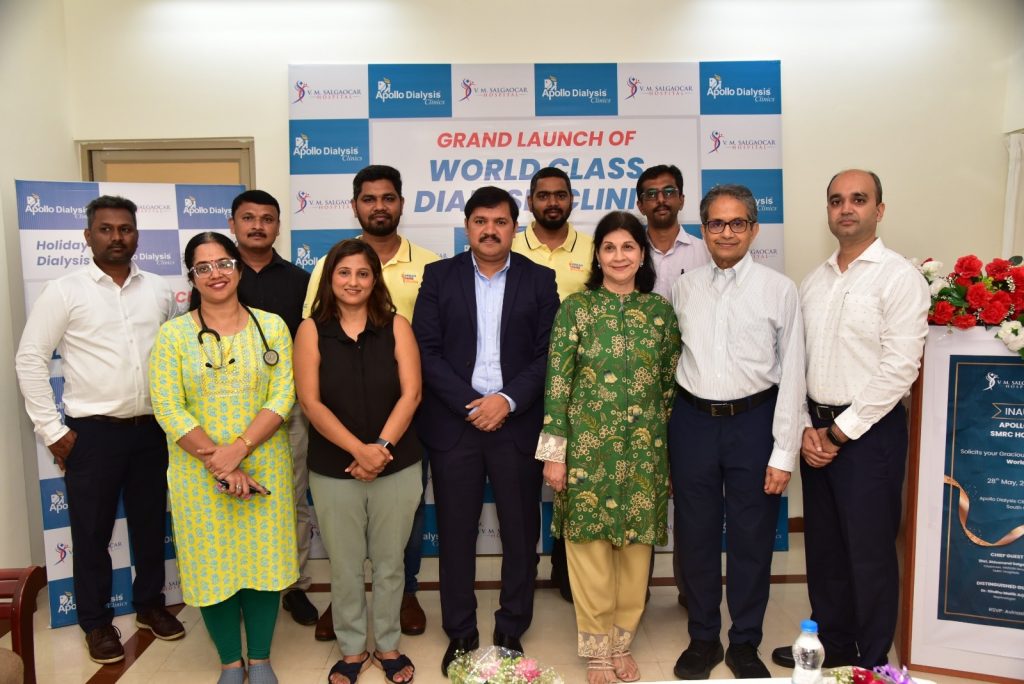
APOLLO Dialysis Pvt Ltd, a subsidiary of Apollo Health and Lifestyle Limited, and a pioneer in dialysis services, launched a new dialysis unit at SMRC Hospital (Salgaocar’s Medical Research Centre), Chicalim, Goa on May 30, 2025. The new facility is equipped to provide exceptional patient care to individuals facing renal failure and is built in the hospital premises with advanced technology, staffed by experienced nephrologists and trained dialysis technicians.
Apollo Dialysis Clinics offer world-class dialysis services, delivered with advanced technology and compassionate care. With DDSSY (Deen Dayal Swasthya Seva Yojana) coverage for dialysis treatments, the care clinic ensures affordability for eligible patients.
Dr Sindhu Mallik Arjun-Nephrologist, Apollo Dialysis clinics & SMRCH emphasized that “Recognizing the need for prompt and comprehensive care in managing kidney conditions such as end-stage renal disease is essential for ensuring optimal outcomes for patients. Timely intervention can prevent further deterioration of kidney function, while a well-equipped dialysis unit plays a crucial role in providing life-sustaining treatments like hemodialysis or peritoneal dialysis. By prioritizing promptness and comprehensiveness in care delivery, we can improve the quality of life and outcomes for individuals living with end-stage renal disease.”
On the occasion, M Sudhakara Rao, COO of Apollo Dialysis Clinics, announced the inauguration of their 160TH clinic at SMRC Hospital, Goa. He emphasized this as a crucial step in Apollo Dialysis’ mission to expand access to high-quality renal care pan India.
Mr Rao highlighted that the new facility will operate under the (DDSSY), ensuring that patients in the region receive affordable and timely dialysis services. “This new centre is not just a step forward for Apollo Dialysis Clinics but also a step closer to achieving equitable healthcare for all.” Mr Rao said the steady expansion of Apollo Dialysis clinics into Tier I and Tier II cities, reiterated the brand’s commitment not only to treatment excellence but also to delivering care with compassion, dignity and a patient-first approach.
Another milestone feature highlighted at SMRC Goa clinic, is the introduction of holiday dialysis. This facilitates patients on regular dialysis to travel without interrupting their treatment, enabling advance booking of sessions for visitors to Goa to continue with their dialysis while enjoying their holiday in Goa.
Chairman and Managing Director of SMRC Hospital Sivanand Salgaocar, said, “We are excited to partner with Apollo Dialysis Clinics to provide convenient access to best-in-class kidney care and treatment at SMRC Hospital. Our commitment has always been to meet the needs of our patients by offering affordable and high-quality healthcare. Through this collaboration, we aim to serve both local residents and visitors in Goa.” He added, “The dialysis clinic is open to the public and offers services under government schemes like DDSSY, making it accessible and affordable for all. We encourage patients in need of regular dialysis to register and benefit from the expert care provided at our facility. We look forward to serving many more patients through this dedicated dialysis unit.”





